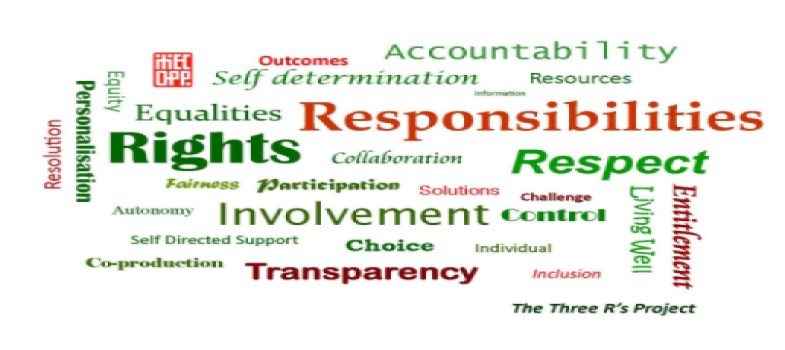If we think back to the PANEL approach discussed earlier, and consider the element of 'Legality', this should involve looking at the full range of human rights including International Treaties to which the UK is a signatory.
In
addition to the ECHR, the UK has also signed up to a number of
international treaties,
Between them, these two Treaties provide for a broader range of rights than ECHR because they include economic, social and
cultural rights.
These
don’t yet create the same enforceable legal duties here in the UK, but they are all monitored by independent experts at the UN, who look at each
country that has agreed to them, every four or so years, and report on how well the country is
progressing in ensuring these rights.
The
duties the UK has under some of these are also a little different. The
government is not expected to solve all of the issues in relation to something
like health or education immediately –
but it must actively take steps to move in the right direction, always
towards those goals and never taking steps backwards.
Let's look at the important Conventions in a little more detail.
UN
Disability Convention (UNCRPD):
The Convention underlines some fundamental principles including participation, human dignity and non-discrimination. It also identifies certain specific rights.
Some examples of the sort of rights protected by the Convention would include the following;
- Accessibility
(Art. 9)
- Equal
recognition before the law (Art. 12)
- Right
to highest attainable standard of physical and mental health (Art. 25)
- Right
to live independently and be included in the community (e.g. Art. 19)
The Convention doesn’t
create new rights but sets out rights disabled people have and the steps that
must be taken to remove the barriers they face in exercising them on an equal
basis with others.
Accessibility
– this requires what we would term reasonable adjustments to be made to allow
for/support disability
Participating
in decision making – this encompasses the right to make decisions in all areas of life, on the same
basis as other people and there are duties to provide the support people need
to exercise that capacity.
Recent
interpretations are to the effect that decision-making must be supported, not substituted. This presents a challenge but shows the importance of
supporting people in all possible ways to make decisions for themselves e.g.
Advance Statements, ADVOCACY, working with family and other
supporters.
Right
to the highest attainable standard of physical and mental health, without
discrimination on the basis of disability – this means the right to be treated the same as anyone
else in provision of health services – the same range, quality and standard of
healthcare.
Right
to independent living - the right to choose where you live and who you live
with and the support to allow that to happen. This aspect of freedom, choice and control over what happens in the life of a
disabled person is fundamental to whole Convention.
International
Covenant on Economic Social and Cultural Rights (ICESCR):
Examples of rights included are;
- Right
to highest attainable standard of physical and mental health (Art. 12)
- Right
to an adequate standard of living – housing, food (Art. 11)
Article
12, ICESCR: “right to the highest attainable standard of physical and mental
health”: This is not a right to be healthy but a commitment to move towards a system where this is
achieved by addressing barriers, providing services that are available ,
accessible, acceptable and of good quality:
In this context, 'Available' means in sufficient quantity.
'Accessible' means accessible to everyone without
discrimination, especially the most
vulnerable or marginalised people. This includes being
physically accessible and affordable and includes the accessibility of health
information;
'Acceptable' means respecting issues of confidentiality
and being sensitive to cultures, communities and gender;
'Good Quality' means scientifically and medically appropriate and of good
quality.
Right
to an adequate standard of living, including housing and food - equally this stops short of a guarantee but requires signatories to move towards a system which promotes the likelihood of this.
UN Convention on the Rights of the Child
The
UNCRC is an international agreement that countries – including Scotland – should obey.
There are Four
guiding principles:
Article
2
- All the rights guaranteed by the UNCRC
must be available to all children and young people without discrimination.
Article
3
- The best interests of the child or young
person must always come first.
Article
12 -
The views of children and young people must
be considered and taken into account in all matters affecting them.
Article
6
- All children and young people have the right
to life, survival and
development.
